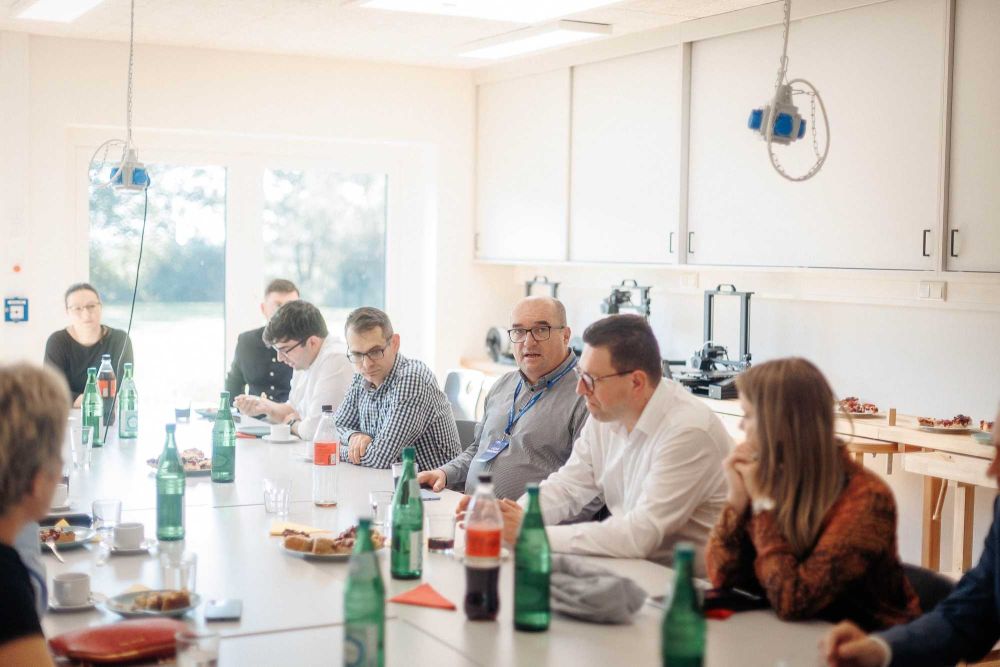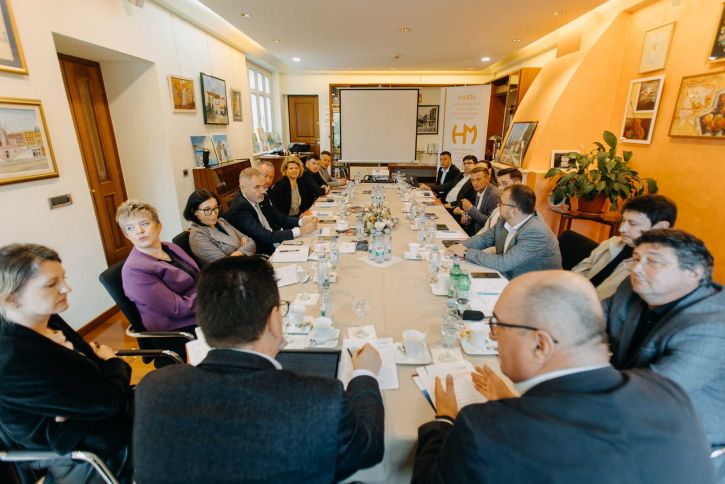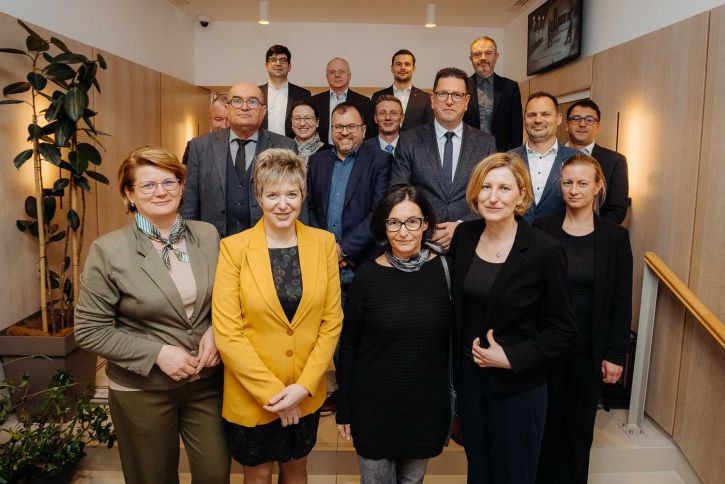It poses a threat to all European minorities if Ukraine becomes an EU member without resolving the minority issue
Representatives of FUEN's Hungarian member organizations met at the German-Danish-Frisian trilingual school in Risum-Lindholm as part of the FUEN Congress.

Minorities living in other countries may also be affected if Ukraine is admitted to the European Union without resolving the situation of minorities, pointed out László Brenzovics, head of the Hungarian Communities Working Group within FUEN and president of KMKSZ. Representatives of FUEN's Hungarian member organizations met on Friday afternoon at the German-Danish-Frisian trilingual school in Risum-Lindholm as part of the German congress of the umbrella organization for minorities.
Representing the Hungarian Democratic Union of Romania (RMDSZ), MEP Loránt Vincze, president of FUEN, and Dóra Szilágyi, executive vice president and president of MIÉRT, reported on the outstanding results achieved in the June elections and the preparations for the presidential and parliamentary elections to be held at the end of the year. József Kulcsár-Terza, president of the Hungarian Civic Force (MPE), spoke about the cooperation with the RMDSZ. Péter Őry, mayor of Csallóközcsütörtök, reported that the Hungarian Association in Slovakia is preparing for elections and explained that a positive development in recent times has been the successful appointment of a minority commissioner to the government: the position will be filled by Ákos Horony, who also attended the MKM meeting. Annamária Vicsek, Vice President of the Hungarian Association of Vojvodina (VMSZ) and Member of the European Parliament, and Elvira Kovács, Member of the Parliamentary Assembly of the Council of Europe, said that despite the unpredictable political situation in Serbia, they had managed to maintain their influence in the municipal, provincial, and parliamentary elections. According to János Andócsi, vice-president of the Democratic Community of Hungarians in Croatia (HMDK), their organization is currently in a state of peaceful development, and with their sole member of parliament, they could become the balance of power in Croatian legislation following the collapse of the far-right coalition party. Orban Dusan, president of the Hungarian National Community in Prekmurje (MMÖNK), said that unfortunately, the Slovenian government had decided to terminate a project that was important to the Hungarian community, which puts the entire community in a difficult position.
The main topic of the meeting was the Hungarian implications of Serbia and Ukraine's accession to the European Union. The head of the working group, László Brenzovics, reported: "In Ukraine, we do not yet see any real intention to resolve the minority issue in a satisfactory manner, and it seems that EU leaders, who are aiming for the country's accession as soon as possible, are not paying sufficient attention to this.
We consider it important that minority rights, which form part of the Copenhagen criteria, be applied during the accession negotiations. Otherwise, this would suggest to other member states, as well as to countries awaiting accession, that these rights do not have to be taken into account," said the president of the Hungarian Cultural Association of Transcarpathia (KMKSZ).
FUEN President Loránt Vincze agreed with this view and supported the idea of organizing a FUEN conference in Brussels to analyze the minority situation in the countries involved in the accession process.
The meeting was attended by Réka Brendus, head of department at the State Secretariat for National Policy, and Áron Léphaft, representing HUNINEU.
The next meeting of the Hungarian Communities Working Group will be held in Croatia in the first half of 2025 at the invitation of the HMDK.

